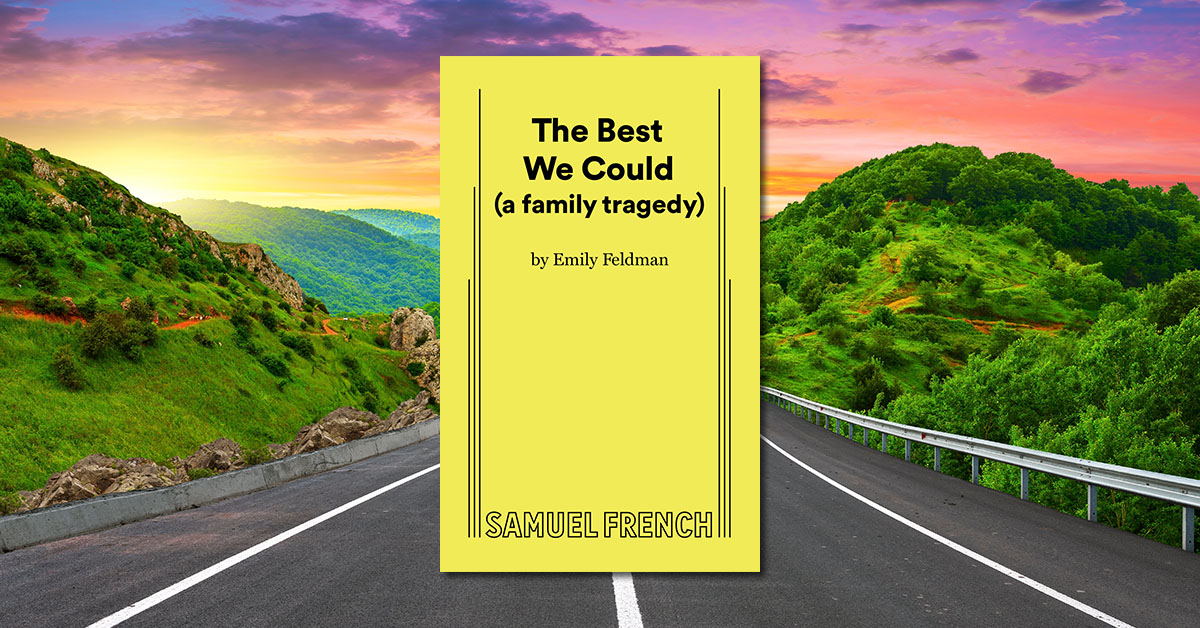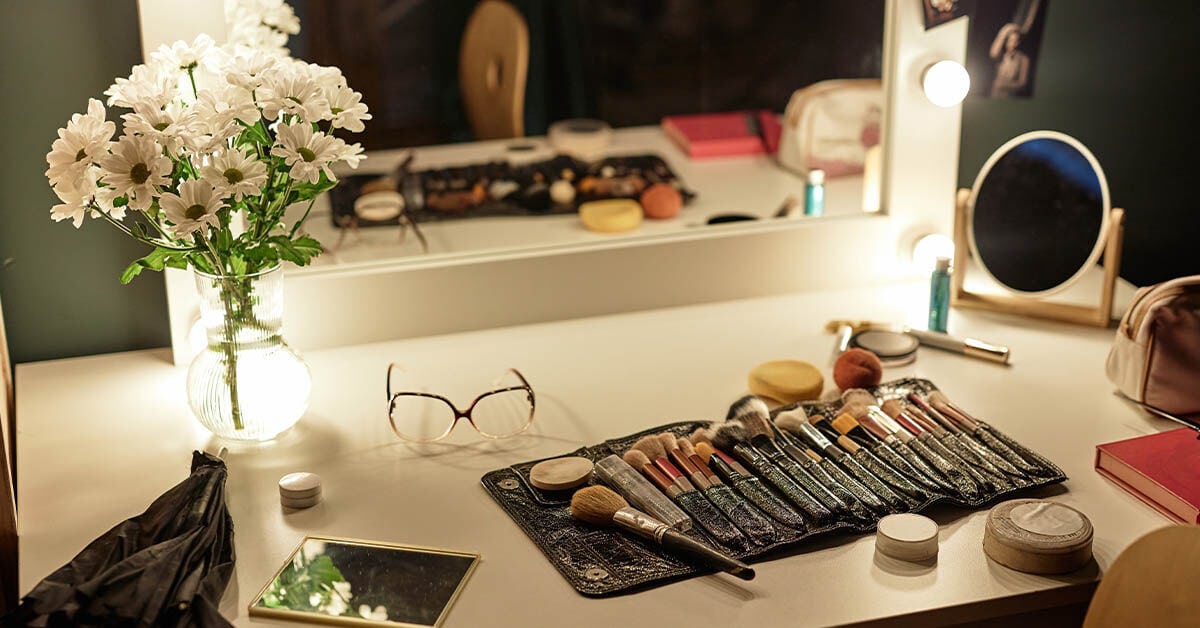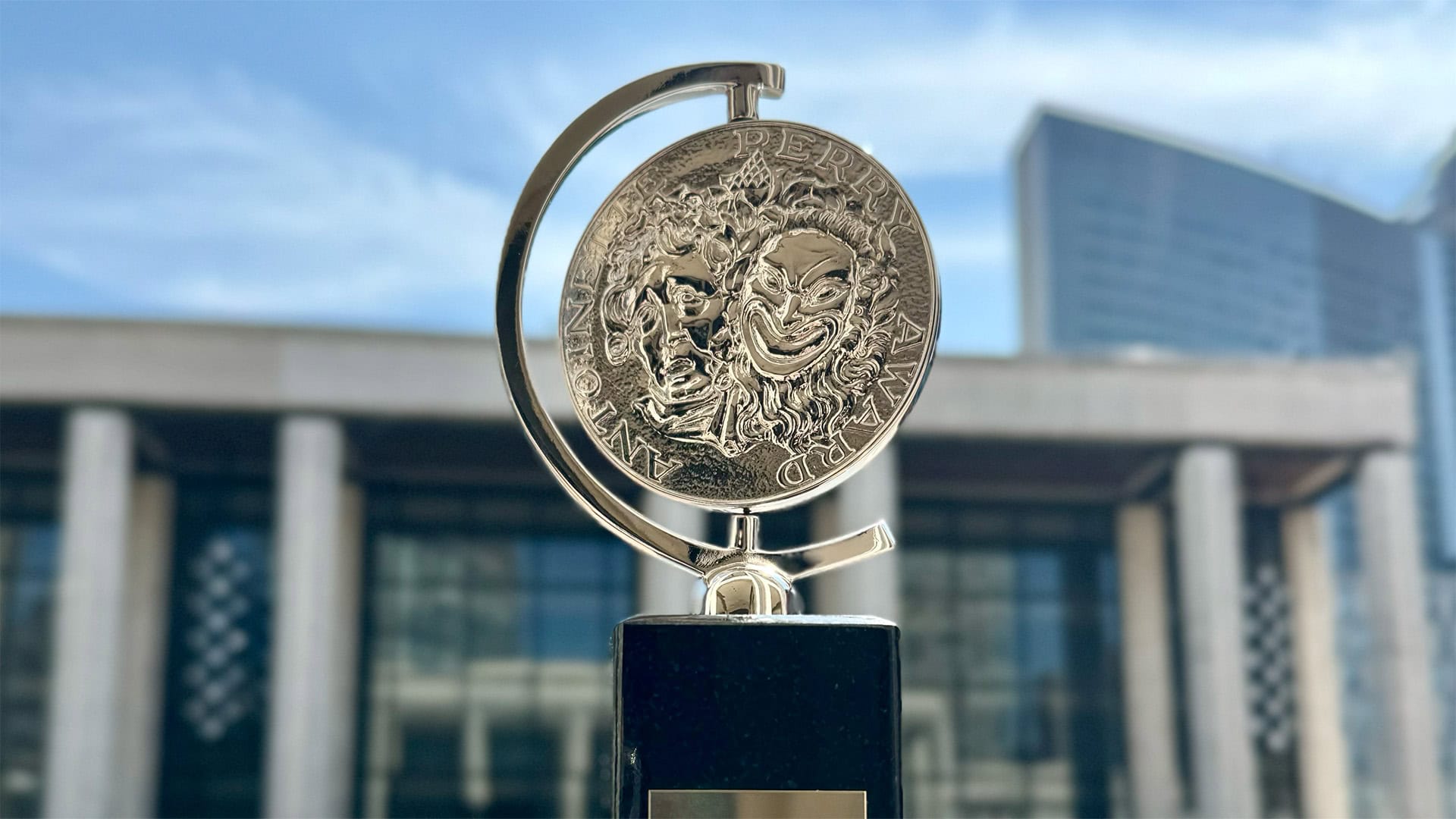
One of the most touching plays of the 2022-2023 off-Broadway season was Emily Feldman’s The Best We Could (a family tragedy) (US/UK). The world premiere at Manhattan Theatre Club had audiences laughing and crying, and for those who’ve seen the play, it’s no shock why. Following Emily and her father, Lou, on a cross-country road trip to adopt a rescue dog, this moving play about their search for meaning in life is very funny, achingly sad and inexplicably familiar.
We reached out to Emily to talk about her writing and about The Best We Could (a family tragedy).
How would you describe yourself/your work as a playwright?
I love to make theatre that celebrates the artifice of the art form rather than trying to hide it. I like to play with the simplest tools of the theatre, like language, bodies and empty space. I love being in a rehearsal room working on a new play with my favorite collaborators more than anything else.
What was the initial idea that sparked The Best We Could (a family tragedy)?
In 2017, when #MeToo sparked an international, intergenerational conversation, I found myself reading Arthur Miller and thinking about his tragic heroes who, for various reasons, find themselves out of step with the cultures they live in and are willing to sacrifice their lives to protect their reputations. I started inventing my version of Willy Loman, who has a daughter, a wife and his own philosophies and missed opportunities. I was curious about the unique relationship between daughters and their fathers in conversations around masculinity and patriarchy. I wanted to see what would happen if I wrote a tragedy that made me laugh.
You’ve created a character called Maps, who is part narrator, part side roles, but also a sort of onstage director who tells characters (and the audience) what they’re going to do. How did you arrive at that convention for this character?
I completely stole this idea from Thornton Wilder. I always wanted to write a play with a stage manager character like Wilder created in Our Town (US/UK) and The Happy Journey to Trenton and Camden (US/UK). I decided that my version of a stage manager character would have authorial authority like those Wilder characters, but I would also offer an actress a tour-de-force role, and she would play an essential part in shaping the plot in a surprising scene near the end of the play.
The play has a lot of relatable themes, but the feeling of ennui shared by both Ella and Lou felt especially prescient. How did you find the humor in two people who feel lost?
I always start with humor. If someone has made the time to sit in the theater and watch a play I wrote, I want them to experience some joy. I find the elliptical, discursive ways people talk in real life a lot of fun on stage – so I started there. Our outlooks on life and ways of dealing with our problems are often inherited, so I drew that parallel between these two characters, who are trying hard to use the language available to them to connect and can’t see everything they have in common.
You’ve written that all you need is a bare set to produce the play, and the play moves fluidly from one scene into the next. What do you hope that freedom in form will provide future productions?
This play invites the audience and the artists making it to use their imaginations to fill in most of the visual details. I hope the minimal set requirements inspire creativity and allow production teams to imagine the many possible ways to stage and cast this play for their communities. I think it’s an invitation to embrace the raw theatricality of the play and will make every production unique and specific to the community where it is performed.
If there’s one thing audiences should take away from your play, what would that be?
I hope they find some moments of recognition and shared joy and feel like they’ve had a complete and potent emotional experience in the theater that inspires conversation with the people they love.
To license a production or purchase the script to The Best We Could (a family tragedy), visit Concord Theatricals in the US or UK.

Women and Show Biz: A Conversation with Playwright Peter Quilter

A Pan of Buttermilk Biscuits: Purlie Victorious and Sustenance

